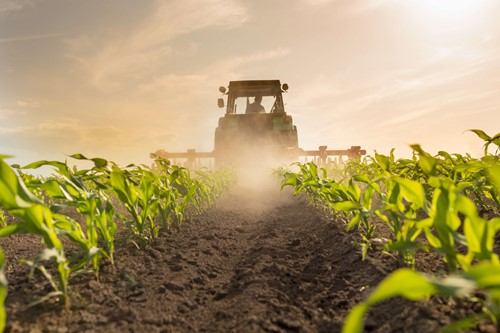In the UK, seasonal workers play a vital role in agriculture, handling tasks from crop harvesting to transportation. With at least 58,000 out of 471,000 seasonal agricultural workers, their use helps meet temporary surges in labour demand. Many farmers rely on migrant workers for these roles, presenting specific challenges for employers.
This short-form article by Croner guides managing the recruitment, training, and retention of seasonal workers, addressing the unique challenges in the agriculture industry. A full version is available that expands on these details.

Seasonal Worker Visa
- Migrant workers account for about 99% of agricultural seasonal workers in the EU. (National Farmers’ Union.)
- The UK plans to grant 45,000-55,000 seasonal visas to migrants for agricultural work in 2024.
- Seasonal Worker visa holders can stay for up to six months within 12 months, with specific timelines for horticulture and poultry production workers.
- Farms must use approved scheme operators to hire seasonal workers, who act as specialist recruitment firms authorised to arrange seasonal worker visas.
- Individual employers cannot directly sponsor seasonal worker visas, and may need to demonstrate efforts to recruit UK-based workers as part of government initiatives to reduce reliance on migrant workers.
Recruitment:
- Plan ahead for peak harvest season and review past data to determine specific tasks requiring additional staff.
- Decide whether migrant or UK-based seasonal workers are the best fit for the specific roles requiring additional staff.
- Consider the advantages of migrant workers over local workers, such as their work ethic and availability.
- Keep in mind the challenges of hiring local workers, such as limited availability and difficulty accessing rural areas.
- Use approved scheme operators/labour providers for migrant workers and check for licensing through the Association of Labour Providers and the Gangmasters and Labour Abuse Authority.
- For local workers, use recruitment agencies or recruit directly for specific roles.
- Although recruitment agencies will eliminate the administrative burden, bear in mind the associated costs.
- Establish connections with local colleges or training providers for local seasonal workers.
- Advertise job roles within the local community for local seasonal workers
Training:
- Ensure the worker goes through the necessary health and safety training to avoid accidents and minimize risks.
- Adapt the training delivery if the worker is not fluent in English.
- Utilize visual aids such as diagrams and videos to clearly communicate the instructions to the worker.
- Croner can assist in the process and provide the necessary resources and consultants to deliver the health and safety training.
- After the health and safety training, the worker should be briefed on the tasks involved in the role.
- The worker should be paired with an experienced worker to shadow the role and ask questions.
- Ensure the worker understands the expectations and goals of the job to remain productive and motivated.
Retention Tactics:
- Give purpose and praise: Clearly communicate the importance of their work and recognise their contributions with praise and appreciation.
- Create a business to be proud of: Foster a positive work environment and emphasize the meaningful impact of their work on the agricultural business.
- Value each team member: Demonstrate respect and appreciation for each worker, acknowledging their individual value to the team.
- Give responsibility to enable impact: Offer opportunities for workers to take on responsibilities, enabling them to make a tangible impact on the operations.
- Provide quality accommodation and facilities: Ensure that housing and facilities provided to seasonal workers meet their basic needs and are of good quality.
- Ensure holidays and rest: Offer adequate holiday and rest time to promote work-life balance and well-being.
Compliance Considerations:
- Working Time Regulations: Farmers should ensure compliance with working time regulations to protect the health and safety of seasonal workers. This involves adhering to limits on working hours, providing adequate rest periods, and ensuring appropriate working conditions to prevent fatigue and promote well-being.
- National Minimum Wage: It is essential for farmers to pay seasonal workers at least the national minimum wage. This includes understanding different minimum wage rates for different age groups and ensuring that workers are fairly remunerated for their labour.
- Service Occupancy Arrangements: Farmers need to be aware of the regulations related to service occupancy arrangements if they provide housing for seasonal workers. Compliance with laws regarding housing standards, maintenance, and occupancy arrangements is critical to ensure the well-being of workers.
- Equality Act: Farmers must adhere to the Equality Act to prevent discrimination in the recruitment and treatment of seasonal workers. This involves providing equal opportunities, fair treatment, and reasonable adjustments for workers with disabilities.
- Right-to-Work Checks: Farmers should conduct thorough right-to-work checks to ensure that seasonal workers have the legal right to work in the UK. This includes verifying identity documents and immigration status in accordance with immigration laws and regulations.
Need extra support?
If you need extra support get in touch with one of our experts on 0800 124 4977.
Related resources
Categories
- Business Advice
- Contracts & Documentation
- Culture & Performance
- Disciplinary & Grievances
- Dismissals & Conduct
- Employee Conduct
- Employment Law
- End of Contract
- Equality & Discrimination
- Health & Safety
- Hiring & Managing
- Leave & Absence
- Managing Health & Safety
- Moving
- Occupational Health
- Pay & Benefits
- Recruitment
- Risk & Welfare



